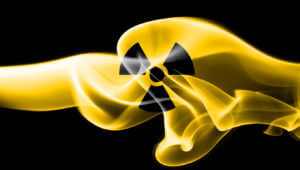
Radiation exposure is a serious health risk that can cause various life-threatening diseases, including certain cancers. People exposed to radiation, particularly those who lived in areas near nuclear test sites, are at a heightened risk. These individuals, known as downwinders, may qualify for compensation under specific federal programs.
Let us explore the link between cancer and radiation exposure, examine available compensation options, and provide actionable guidance on taking the next steps to protect your rights and health.
Understanding Cancer From Radiation Exposure
Radiation exposure occurs when a person absorbs radioactive particles through the air, water, or soil. Prolonged or high-level radiation can alter cells in the body, increasing the risk of certain cancers.
According to the National Cancer Institute, cancers linked to radiation exposure include leukemia, thyroid cancer, breast cancer, and lung cancer. This risk is particularly high when exposure occurs over long periods or during the early stages of life, as developing cells are more vulnerable to radiation damage.
People who lived near nuclear test sites, such as those in Nevada, Utah, and Arizona, are at a greater risk due to fallout from nuclear weapons testing conducted during the mid-20th century. Understanding the risks associated with radiation exposure is the first step in addressing its harmful effects.
Federal Compensation Programs for Downwinders
To assist individuals affected by radiation exposure, the United States government has established programs to provide financial compensation.
Knowing your eligibility and rights can be the first step to receiving the compensation you deserve.
Radiation Exposure Compensation Act (RECA)
The Radiation Exposure Compensation Act (RECA) was established in 1990 to provide financial support to individuals exposed to radiation through nuclear testing. The law covers downwinders, uranium miners, millers, and ore transporters.
If you lived in specifically defined areas in Arizona, Nevada, or Utah between 1945 and 1962 and later developed cancer, you might qualify for compensation.
Key Benefits of RECA
- A one-time payment of $50,000 to eligible downwinders.
- Covers medical conditions such as leukemia, thyroid cancer, and lung cancer, among others.
- Simple application process compared to other federal benefits programs.
It is important to submit your application before the program’s expiration date, as it is not a permanent program.
Who Is Eligible for RECA Compensation
To qualify under the RECA program, you must meet the following requirements:
- Resided in specified counties within Arizona, Nevada, or Utah during the years stated.
- Have a confirmed diagnosis of cancer linked to radiation exposure.
- Submit appropriate medical and residence documentation.
The specific list of eligible counties and more details on application requirements are available through the U.S. Department of Justice.
Steps to Take If You Are a Downwinder
If you suspect you or a loved one has developed cancer from radiation exposure, take the following steps to protect your health and explore compensation options.
1. Consult a Healthcare Provider
Start by visiting a doctor to evaluate your health, as early detection increases the chances of successful treatment.
Make sure to inform your doctor about potential radiation exposure and request screenings or specialized tests for cancers common among downwinders, such as leukemia or thyroid cancer.
2. Gather Documentation
Proper documentation is essential to prove your eligibility for compensation. Collect evidence of your residency in affected areas, such as utility bills, tax records, or school enrollment proof.
Medical records, including proof of cancer diagnosis and treatment plans, are also required.
3. Apply for RECA Aid
Gather all necessary forms and submit your RECA application to the Department of Justice. There are organizations and legal resources available to assist with the application.
4. Learn About Legal Support Options
Consider contacting legal professionals experienced in helping downwinders. These experts can guide you through the application and appeals process, ensuring your rights are protected.
Why Compensation Matters
Compensation programs like RECA serve as more than financial relief. They are an acknowledgment of the immense sacrifice and suffering endured by individuals exposed to radiation.
Financial assistance can help cover medical expenses, support your family, and allow you to seek the best possible care. Advocating for these programs also ensures that future generations are better protected and informed about the consequences of radiation exposure.
Get Your Compensation for Cancer From Radiation Exposure in Arizona, Nevada, and Utah
If you or someone you love has suffered due to cancer from radiation exposure, do not wait to seek assistance. Programs like RECA are available, but they have deadlines.
At Downwinders®, we know that pursuing compensation for radiation exposure can be overwhelming and confusing. That is why we are here to help guide you through the process and make sure you receive the support and compensation you deserve.
Our team of experienced providers will work tirelessly to gather evidence, build a strong case, and fight for your rights.
We understand the physical, emotional, and financial toll that radiation exposure can have on individuals and families. That is why our approach is compassionate yet authoritative – we will do everything in our power to ensure that justice is served.
Give us a call today at 1 (855) 631-7197 to learn more about us. We look forward to serving you!
 Downwinders® Claims
Downwinders® Claims